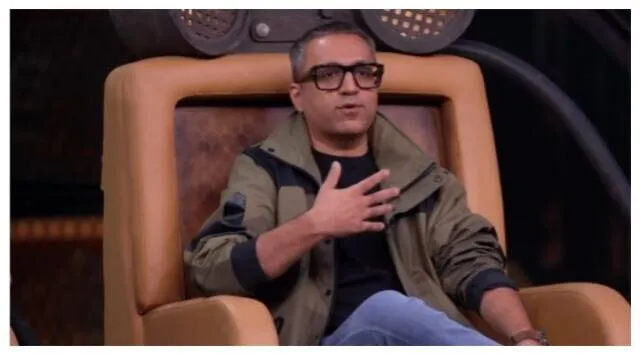The landscape of mobile telecommunications is rapidly evolving, with new technologies continually emerging. In recent developments, Reliance Jio, a prominent player in the Indian telecom industry, has proposed the shutdown of 2G and 3G services. This article explores the implications of such a move, examining the reasons behind Reliance Jio’s proposal and the potential impact on users and the telecom sector.
Evolution of Mobile Networks
Mobile networks have come a long way since the introduction of 2G and 3G technologies. These technologies marked significant milestones in enabling voice and data communication. However, with the advent of 4G and the imminent rollout of 5G networks, the telecom landscape is undergoing a transformative shift towards faster and more efficient connectivity.
Reliance Jio’s Perspective
Reliance Jio’s push to shut down 2G and 3G services is rooted in the belief that focusing on advanced technologies is crucial for the growth of the telecom sector. The company aims to leverage the benefits of 4G and 5G networks, providing users with enhanced speed, reliability, and a plethora of innovative services.
Impact on Users
While the move towards advanced technologies is promising, there are concerns about current users heavily reliant on 2G and 3G services. The transition poses potential challenges, necessitating thoughtful strategies to ensure a smooth migration without leaving anyone behind.
Government’s Role in Telecom Evolution
The government plays a pivotal role in steering the evolution of the telecom sector. Regulatory policies that support technological advancements must strike a balance between ensuring accessibility for all and fostering progress towards cutting-edge solutions.
Technological Advancements in Telecommunications
The future of mobile networks lies in 5G technology, promising unprecedented speeds and connectivity. Exploring the global landscape of advanced telecommunication provides insights into the transformative potential of these innovations.
Challenges in Shutting Down Legacy Networks
Shutting down legacy networks presents challenges, ranging from infrastructure concerns to economic implications for telecom operators. Addressing these challenges is crucial for a successful transition to more advanced technologies.
Global Examples of 2G and 3G Phase-Out
Several countries have successfully phased out 2G and 3G services. Examining these international experiences provides valuable lessons and best practices that can inform the Indian telecom industry’s approach.
Reliance Jio’s Preparedness for the Transition
Reliance Jio’s commitment to a seamless transition involves substantial investments in 4G and 5G infrastructure. Additionally, the company is actively involved in initiatives to educate and assist users during this transformative period.
Public Response and Stakeholder Opinions
Understanding the views of telecom industry experts and gauging public sentiment regarding Reliance Jio’s proposal is essential. Examining diverse opinions helps create a comprehensive picture of the potential impact on various stakeholders.
Potential Economic Boost
Transitioning to advanced technologies can have a positive economic impact, fostering job creation and innovation in the telecom sector. The article delves into how embracing these changes can contribute to the economic growth of the country.
Criticisms and Concerns
Not everyone is on board with the proposal. Opposition from competing telecom operators and concerns related to privacy and security need to be addressed to ensure a well-rounded discussion on the feasibility of shutting down 2G and 3G services.
Government’s Decision-Making Process
The government’s decision-making process should carefully evaluate the social and economic impacts of shutting down legacy networks. Public consultation and feedback mechanisms play a crucial role in shaping a decision that aligns with the nation’s interests.
Timeline for the Transition
A phased approach to shutting down 2G and 3G services is essential. Establishing expected milestones and addressing potential challenges will guide the industry through this significant transformation.
Future of Telecommunications in India
Looking ahead, this section explores Reliance Jio’s vision for the future of telecommunications in India. What does the road ahead look like, and how will it impact the lives of millions of users across the country?
In conclusion, the proposal to shut down 2G and 3G services by Reliance Jio sparks a crucial conversation about the future of telecommunications in India. The dynamic interplay between technological advancement, user needs, and economic considerations requires a balanced and informed decision-making process.
FAQs
- Is shutting down 2G and 3G services a common trend globally?Yes, many countries have successfully phased out 2G and 3G services in favor of more advanced technologies.
- How will the shutdown impact users who still rely on 2G and 3G services?The article discusses potential challenges and strategies to ensure a smooth transition for users heavily dependent on legacy networks.
- What are the economic benefits of transitioning to 4G and 5G networks?Embracing advanced technologies can lead to job creation and innovation, contributing to the economic growth of the telecom sector.
- What are the criticisms against shutting down legacy networks?Opposition from competing operators and concerns related to privacy and security are addressed in the article.
- How is Reliance Jio preparing for the transition, and what initiatives are in place for user education?The article explores Reliance Jio’s investments in infrastructure and initiatives to educate and assist users during the transition.







